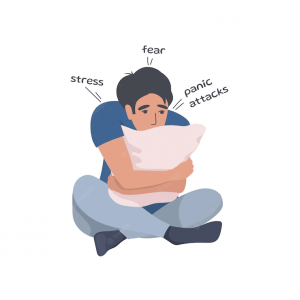You may be living with trauma if you have seen or experienced anything that truly surprised or frightened you. Anything that causes you a lot of stress might be traumatic. Everyone experiences trauma differently; what could appear normal to someone else may be distressing to you.
A traumatic event, like a vehicle accident, can endanger your physical safety. It might be a social or emotional issue. Trauma can result from a single incident, such as a brutal assault. Or it could be pervasive, like child abuse. A trauma response can be brought on by a variety of situations, including abuse, disasters, abrupt deaths, bullying, deprivation, and discrimination.
Nearly everyone experiences fear and anxiety both during and after a distressing event. Some people experience chronic symptoms that interfere with their day-to-day activities. Persons of any age can experience trauma. However, due to how quickly their brains are still developing, youngsters are particularly affected because of how long-lasting it is.
Everyone will have a distinct response to a scenario or feeling, thus not everyone who experiences the same thing as you will feel the way you do. After going through a traumatic occurrence, there is no “correct” or “incorrect” way to think, feel, or behave. But you might discover that you have some of these signs:
- Fear, anxiety
- Shock, disbelief
- Confusion, difficulty focusing
- Anger
- Guilt, shame
- Sadness, hopelessness
- Feeling disconnected or numb
- Feeling like everything is out of your control

You may also face these physical symptoms:
- Having trouble sleeping, getting nightmares
- Fatigue, exhaustion
- Dizziness, shakiness
- Racing heart, fast breathing
- Feeling on edge
- Body aches/pains, muscle tension
- Increased substance use
Trauma is mentally taxing. For a while, you might not feel like yourself. In many cases, as time passes and you digest what happened, symptoms will eventually go away. It’s normal for unpleasant memories or feelings to occasionally reappear after you’ve recovered, especially in response to event anniversaries or other things that trigger the trauma. Triggers are things that make you recall traumatic memories or symptoms.

Trauma may spiral down to post-traumatic stress disorder (PTSD) or even lead to other mental health conditions, like depression and anxiety. No matter what, don’t be too hard on yourself! Trauma is difficult to process, but it doesn’t imply you’ll never recover. There are multiple strategies for trauma survivors to manage their symptoms and enhance their quality of life. With the aid of their support network, therapy, dietary adjustments, and/or medication, many survivors of trauma lead happy lives.

